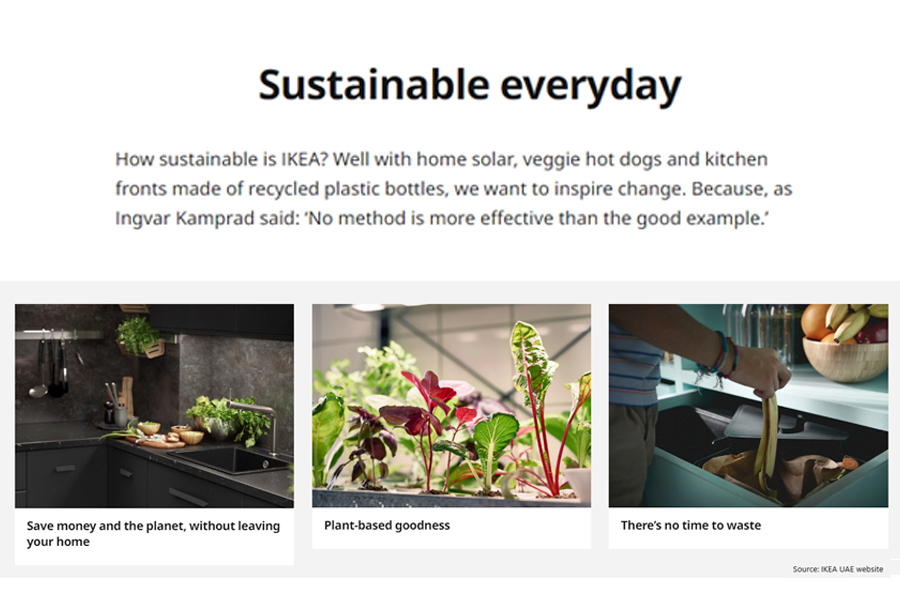
Swedish home furnishing brand IKEA – part of retail conglomerate Al-Futtaim – has successfully phased out single-use plastic from its home furnishing range globally – in line with the commitment it made in June 2018 towards making a positive impact for people and the planet.
This includes single-use plastic products that are based on renewable and/or recyclable plastic material intended to only be used once and then disposed of like straws, freezer bags, garbage bags and plastic-coated paper plates and cups. Single-use plastic can pollute ecosystems, such as oceans and waterways, and harm wildlife if it is not disposed of responsibly.
Committed to the goal of phasing out single-use plastic products, IKEA has also introduced a new range of disposables for all IKEA restaurants, bistros and cafés. Existing cups, cutlery, bowls, plates and straws have been replaced with products made with materials from renewable sources. Plastic drinking straws have been replaced with paper, bamboo and metal straws depending on the market.
For food safety reasons, the thin layer of coating in disposable cups, a mandatory requirement to prevent liquid from leaking or soaking through the paper, has been replaced with plastic coating made from sugar cane, which is a renewable source. While IKEA does not yet have a replacement for all the product types, it is on a continuous journey to find innovative solutions and products.
Taking the step to remove single-use plastic from the IKEA home furnishing product range is a positive contribution to the environment and society. It is also in line with the brand’s 2030 goal – to become a circular business designing all new products from the very beginning to be repurposed, repaired, reused, resold and recycled, generating as little waste as possible and to only use renewable or recycled materials across the home furnishing range and packaging.
The direction for IKEA for many years has been to use as much fibre-based material as possible for packaging. For instance, it has removed all EPS (expanded polystyrene) from the home furnishing range, except for some kitchen appliances. In the last 10 years IKEA has reduced the use of plastic in its packaging solutions, from 12% down to 6% today and the goal is to reach 3% by 2030. The plastic material used in their packaging in 2030, will mainly be bio-based and used in the IKEA Food area due to food safety requirements.
Notifications